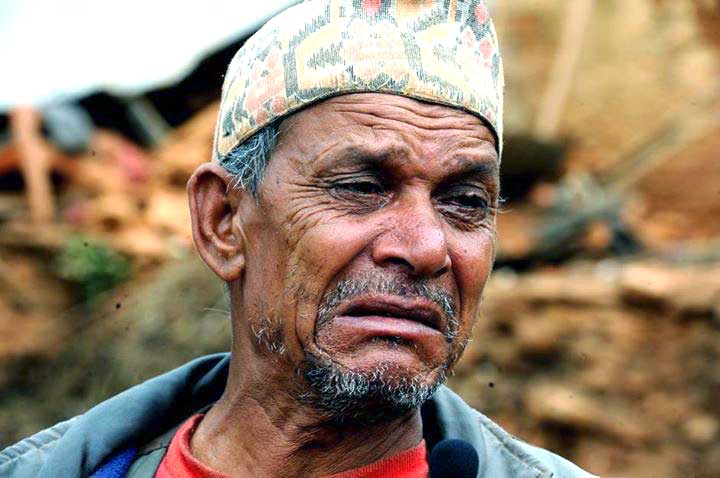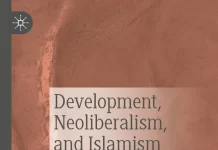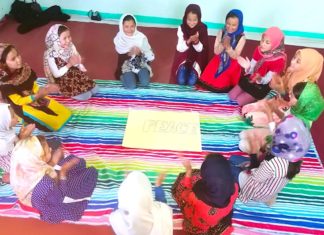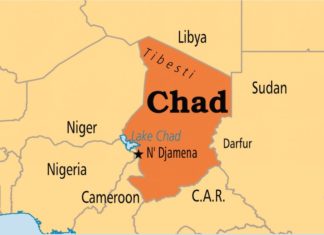 By Manoj Kr. Bhusal
By Manoj Kr. Bhusal
[dropcap]R[/dropcap]aising money and doing good is important and praiseworthy, but Nepal, however, will need a wisely coordinated long-term assistance to recover and rebuild.
After a massive earthquake claimed more than 5000 lives and destroyed the livelihoods of millions, there is an obvious question: Will Nepal bounce back easily? That is most likely to depend on whether Nepal and its citizens are able to prevent a social disaster that possibly follows the deadly natural disaster.

Forget about reconstruction, developing Nepal in the first place has been always difficult; partly due to its difficult geographical terrains, but also because of the country’s another ongoing disaster: its dysfunctional politics. Nepal was ruled by autocratic family dynasties for centuries and the fight for a parliamentary democracy lasted for decades. Even before Nepal started benefitting from its democracy dividends, it plunged into a bloody civil war that took more than 18000 lives.
Since the civil war ended with a peace deal in 2006, the country was slowly moving to recover from its wartime traumas. Though transitional justice and a consensual constitution seemed still elusive, since there was relative peace, hopes for development and prosperity were not uncommon.
See Also: Restoring Nepal With Solar Lamps And Clean Water
Renowned for being honest and laborious, many Nepalis sell their labor abroad so that poverty at home could be checked.
Already struggling Nepal now finds itself amidst the rubbles of a powerful natural disaster. Existentially this looks very unfair and nobody knows how long it will take to fully recover. Recovery will mostly depend on actions (or thereof inactions) of Nepal’s government and people, international aid agencies and the Nepali diaspora.
International solidarity and support in the wake of Nepal’s earthquake has been very quick and unique so far.
International solidarity and support in the wake of Nepal’s earthquake has been very quick and unique so far. Many countries dispatched their rescue teams and relief materials within 48 hours after the disaster hit. In a unique example of solidarity Bhutanese Prime Minister Tshering Tobgay travelled himself to Kathmandu, accompanied by a medical support team. Tech giants such as Google, Facebook and Microsoft have stepped in with tech assistance and donations. The sheer amount of aid and solidarity so far certainly signals that though not rich and powerful Nepal is considered an important friend of the world.
There are certainly underlying issues with the so-called inpouring of aid and assistance though. First, we don’t actually know how much aid is going to come in real terms. According to Nepal’s Foreign Ministry for International Affairs, as of 30 April 2015, no foreign government has donated in cash except Bhutan. There have been a plenty of pledges, but with no actual transfers. And as the humanitarian aid history elsewhere shows, once the media frenzy ends, often a pledge simply remains a pledge.
Second, some countries, such as India and China, have been accused of playing a disaster politics. Recently China contacted Nepal’s authorities to show its concern as India, reportedly, was interested excessively in villages that were near the Chinese border. There have been rumors of spying and competitions on having an impact and showing an influence. In another case, the German Embassy officials in Kathmandu tried to seize the opportunity of the chaos by unsuccessfully trying to release a German drug trafficker from a detention center in Kathmandu.
There is another danger of an uncoordinated humanitarian response and its (short) time-span. This is nothing new in aid industry and seems to have become sort of a norm these days. Sings of very frantic and uncoordinated efforts have been already seen in Nepal’s case too. Lack of coordination starts at fundraising and continues to service delivery. Raising money and doing good is important and praiseworthy, but Nepal, however, will need a wisely coordinated long-term assistance to recover and rebuild.
Dysfunctional State System & Nepali Diaspora
Nepal’s government is already overwhelmed by relief requests that it receives from everywhere. It has never handled a disaster of such an extensive magnitude before. Disaster preparedness was never a national priority since the country was exclusively engrossed in consolidating the ongoing peace process and drafting a new constitution. People are angry and frustrated and since focusing on the negative is virtually a norm in the media, anger and frustration has started to spill in the streets.
Some youth activists and volunteers have expressed their frustration over people’s excessive dependency on an already weak and party dysfunctional government mechanism.
‘We as people can do a lot, but since they are safe some people have chosen not to do anything. Pointing fingers is much easier than exercising empathy and compassion,’ a Nepali volunteer who has been continuously engaged in rescue and relief effort since Saturday’s earthquake told GSDM. There are, however, heroic stories of help, cooperation and compassion too.
See Also: Reinventing a New Model for Education in Rural Nepal
Nepal’s extensive diaspora also has a significant influence on Nepal’s state of affairs. As significant contributors to the country’s economy, the non-resident Nepalis (NRNs) enjoy various political and social leverages. In the wake of the current tragedy, they have already raised millions in donations and plan to employ their own relief effort in Nepal. However, they also suffer from a superiority complex and divisions within themselves are not uncommon. Very active users of social media, the NRNs have been often accused of expecting a ‘first-world’ service from a ‘third-world’ government back home.
Preventing a Social Disaster
Nepal’s more challenging days are yet to come. Raising money for reconstruction will be difficult once the media attention turns away. Rehabilitation and reintegration processes are likely to be long and painstaking, and sooner or later foreign relief and aid workers are going to leave. Prolonged frustration in the general public might result into social unrests and even violence.
Whether Nepalis can keep themselves united at the time of crisis will provide answers to most of today’s and tomorrow’s problems.
However, Nepal can prevent itself from falling into a social disaster by keeping its communal integrity intact and exercising utmost resilience and tolerance. Whether Nepalis can keep themselves united at the time of crisis will provide answers to most of today’s and tomorrow’s problems.










